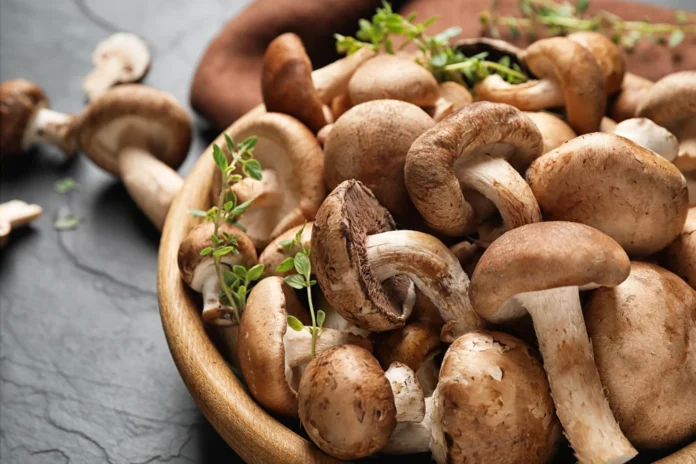What is Mushroom?
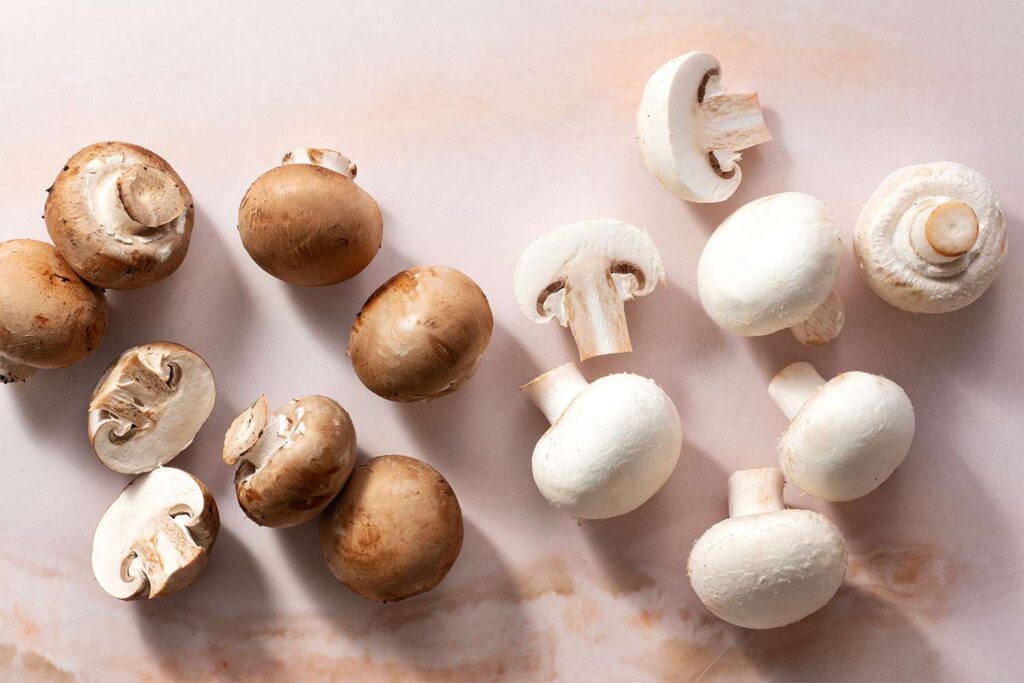
A mushroom is a type of fungus, typically with a stem, cap, and gills or pores underneath the cap, where spores are produced for reproduction. The term “mushroom” is often used to describe the edible fruiting body of certain fungi, though not all mushrooms are safe to eat, as some are poisonous. Mushrooms can grow in a variety of habitats, from forests to grasslands, and play a significant role in ecosystems as decomposers, breaking down organic material. Some common types of mushrooms include button mushrooms, shiitake, and portobello, while poisonous varieties include the death cap and fly agaric.
Identification of safe Mushroom
There are some apparent rules for picking safe mushrooms but these are just fanciful if not downright dangerous:
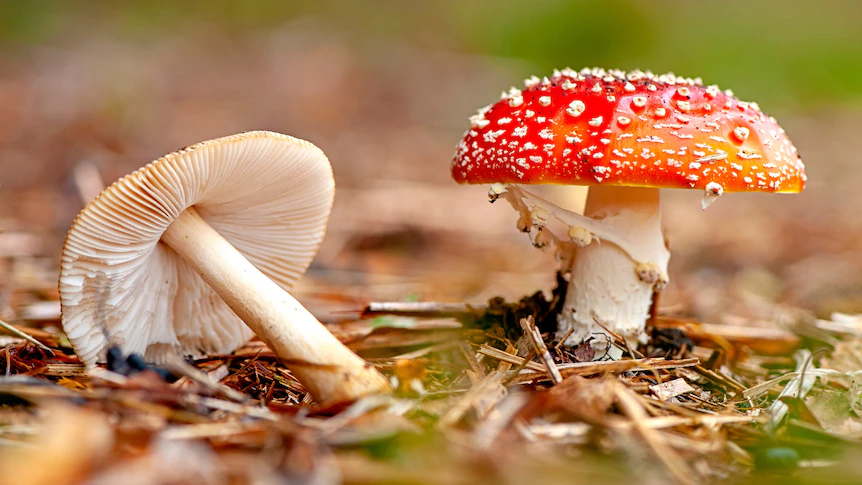
- ‘It’s ok if you can peel the cap.’ It is easy to peel a Death Cap.
- ‘Mushrooms growing on wood are safe.’ No not all of them are and some are deadly, like the Funeral Bell.
- ‘If you see other animals eating them, they are ok.’ This rule is not true, many animals can eat poisonous fungi with no ill effects.
Some good rules apply for avoiding poisonous mushrooms if you are a novice:
- Avoid mushrooms with white gills, a skirt or ring on the stem and a bulbous or sack like base called a volva. You may be missing out on some good edible fungi but it means you will be avoiding the deadly members of the Amanita family.
- Avoid mushrooms with red on the cap or stem. Again, you will be missing out on some good mushrooms but more importantly you won’t be picking poisonous ones.
- Finally, don’t consume any mushrooms unless you are 100% sure of what they are. I know I have already mentioned this but it is by far the most important rule.
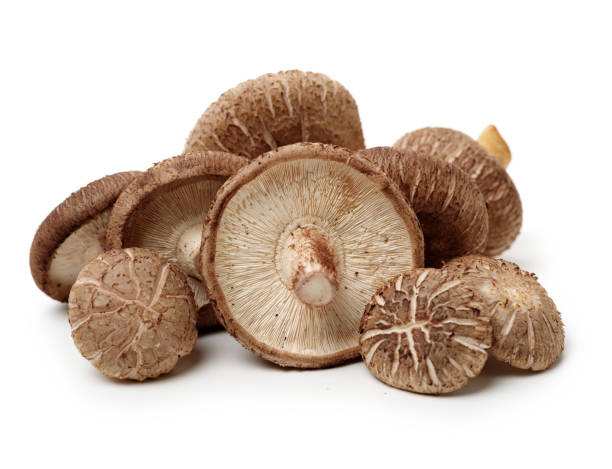
Forms
Mushrooms are found in various forms some of them are:
- Fresh
- Dried
- Capsules
Types
There are many types of mushrooms, categorized based on their appearance, habitat, and whether they are edible, medicinal, or poisonous. Here are some common types:
1. Edible Mushrooms:
- Button Mushroom (Agaricus bisporus): One of the most common mushrooms, white in color and mild in taste.
- Portobello Mushroom: A mature form of the button mushroom, with a large, meaty cap.
- Shiitake (Lentinula edodes): Popular in Asian cuisine, known for its rich, savory flavor.
- Oyster Mushroom (Pleurotus ostreatus): Fan-shaped, with a delicate texture and mild flavor.
- Chanterelle (Cantharellus): Golden-yellow with a fruity aroma, commonly used in gourmet dishes.
- Porcini (Boletus edulis): Often used in Italian cooking, known for its nutty flavor.
2. Medicinal Mushrooms:
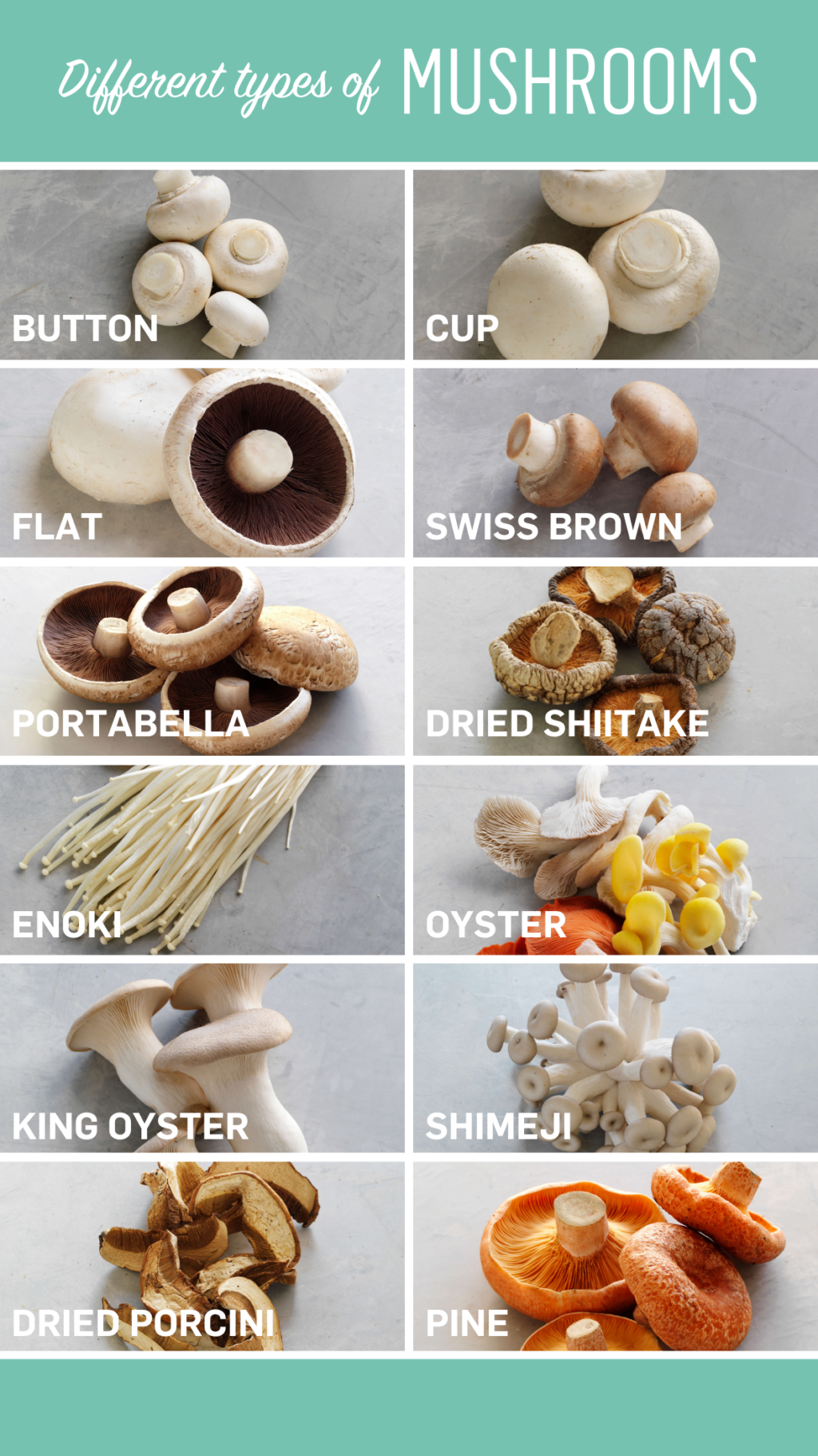
- Reishi (Ganoderma lucidum): Used in traditional medicine, known for its potential immune-boosting and anti-inflammatory properties.
- Lion’s Mane (Hericium erinaceus): Known for promoting brain health and cognitive function.
- Turkey Tail (Trametes versicolor): Often used for immune system support.
3. Poisonous Mushrooms:
- Death Cap (Amanita phalloides): One of the deadliest mushrooms, often mistaken for edible varieties.
- Fly Agaric (Amanita muscaria): Recognizable by its bright red cap with white spots, toxic but has historical uses in rituals.
- Destroying Angel (Amanita virosa): Another highly poisonous species, white and often mistaken for edible varieties.
4. Psychedelic Mushrooms:
Psilocybin Mushrooms (Magic Mushrooms): Contains the psychoactive compound psilocybin, which can cause hallucinations when ingested.
5. Mycorrhizal Mushrooms:
- These form symbiotic relationships with trees and plants, helping them absorb nutrients.
- Truffles: A prized delicacy, typically found underground near tree roots.
- King Bolete (Boletus edulis): Another example, associated with specific types of trees.
Health Benefits
Immune system
Mushrooms activate substances in your immune system that can enhance its ability to protect you against infection and disease, including the growth of tumor cells. Some research has found a potential link between higher mushroom consumption and lower cancer risk, especially breast cancer.
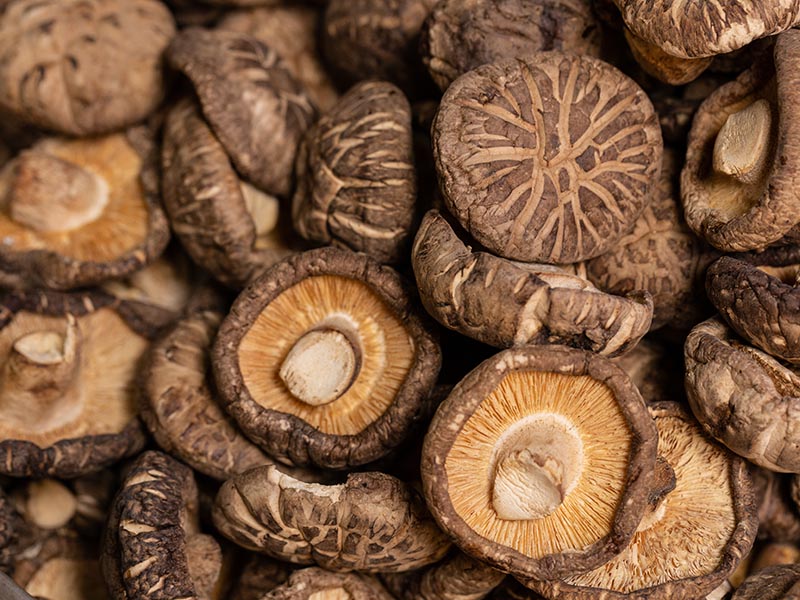
Protect brain health
The nutritional value of mushrooms may help protect your brain from mild cognitive impairment (MCI). In one study, participants 60 and older who ate more than two cups of mushrooms per week had a much lower risk of developing MCI.
Improve gut health
Mushrooms contain substances you need to balance your microbiome (fungi, bacteria and viruses) in your gut and fuel the growth of good bacteria. By supporting your digestive system and immune system, mushrooms can help make sure that the nutritious food you eat keeps you healthy and strong.
Promote Lower Cholesterol
Mushrooms make an excellent substitute for red meat while minimizing calories, fat and cholesterol. Research shows that shiitake mushrooms, in particular, help to keep cholesterol levels low. They contain compounds that inhibit the production of cholesterol, block cholesterol from being absorbed and lower the overall amount of cholesterol in your blood.
Blood Sugar Regulation
Some mushrooms, especially maitake, have been shown to improve insulin sensitivity and help regulate blood sugar levels, making them beneficial for managing diabetes.
Weight Management
Mushrooms are low in calories and rich in fiber, helping with satiety and weight management.
Rich in Nutrients
Mushrooms are a great source of B vitamins (B2, B3, and B5), vitamin D, selenium, and copper, which support energy production, immune function, and overall health. They are low in calories, making them an excellent addition to a healthy diet. Some mushrooms contain protein and dietary fiber, which are beneficial for digestion and muscle health.
Anti-Cancer Properties
Certain mushrooms, such as turkey tail and maitake, contain polysaccharides that have been studied for their potential to inhibit the growth of cancer cells and improve the immune system’s response to cancer.
DRY MUSHROOM
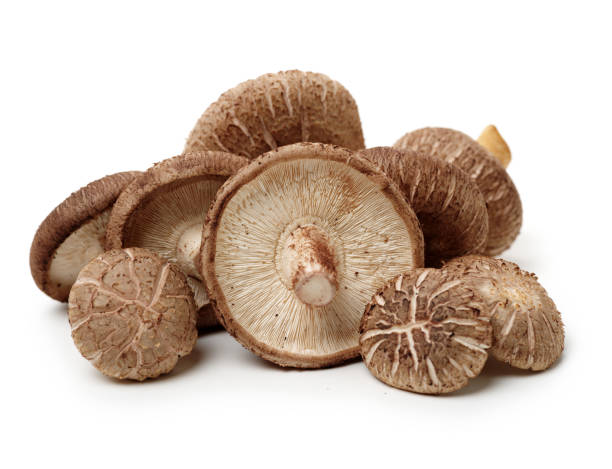
Dry mushrooms are dehydrated versions of fresh mushrooms, preserving their nutrients and flavors while extending their shelf life. They are widely used in cooking for their concentrated taste and are easy to store and rehydrate when needed. Here’s a closer look at dry mushrooms:
Common Types of Dry Mushrooms
- Porcini Mushrooms: Rich, earthy flavor, often used in Italian cooking.
- Shiitake Mushrooms: Savory and slightly smoky, common in Asian cuisine.
- Morel Mushrooms: Nutty and rich, prized in gourmet dishes.
- Chanterelles: Delicate and fruity, used in sauces and soups.
- Matsutake: Aromatic, with a spicy, earthy flavor, often used in Japanese dishes.
Benefits of Dry Mushrooms
- Long Shelf Life: Can last for months or even years when stored properly.
- Concentrated Flavor: Drying intensifies their umami and earthy flavors, making them ideal for flavor-rich dishes like soups, stews, and sauces.
- Convenience: Lightweight and easy to store, they are a convenient pantry item.
- Nutritional Retention: Dry mushrooms retain many of their nutrients, including fiber, vitamins, and minerals.
How to Use Dry Mushrooms?
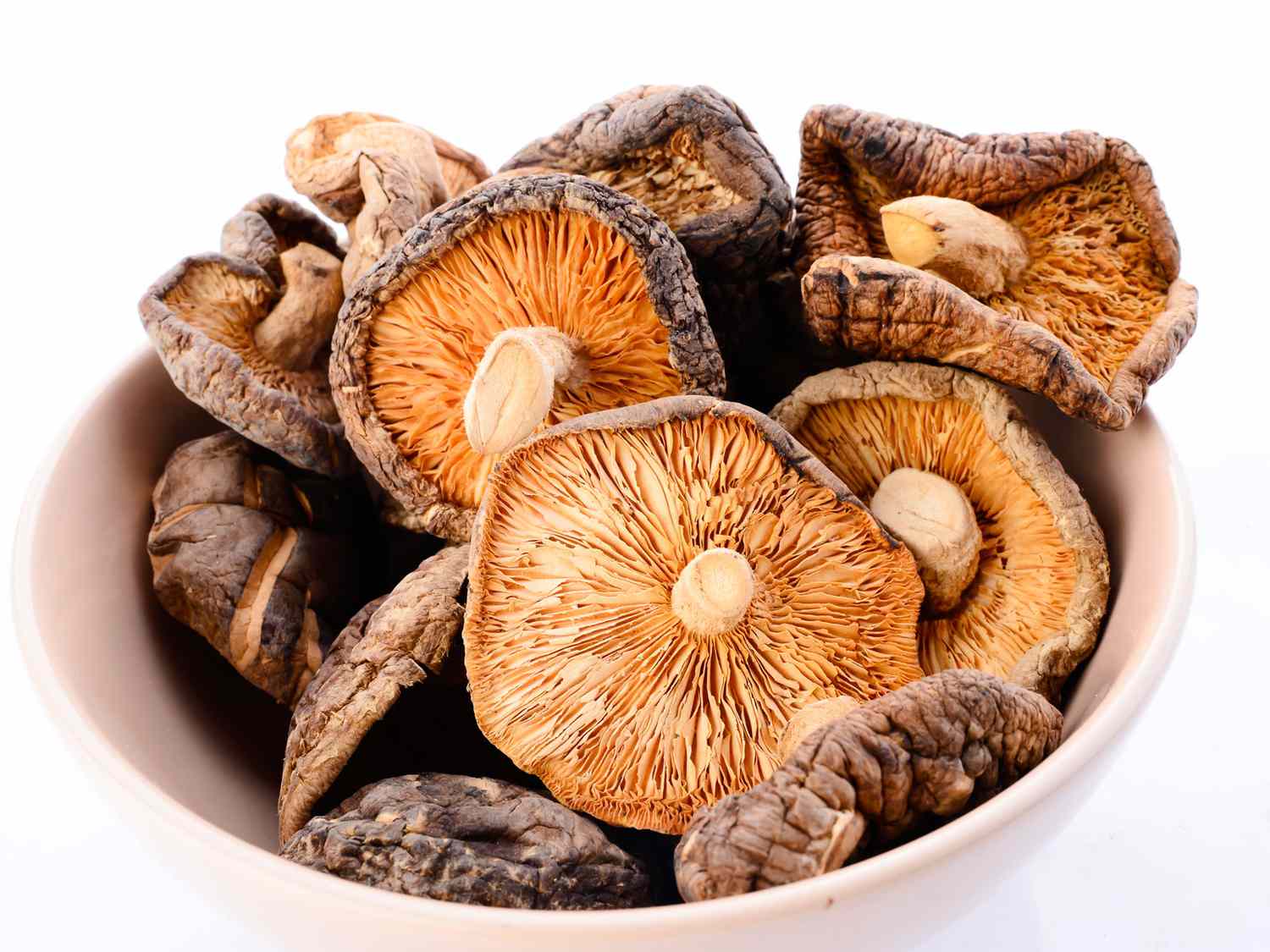
To use dried medicinal mushrooms as medicine, they are typically prepared as teas, tinctures, or powders. For example, Reishi mushrooms, known for immune-boosting and anti-inflammatory properties, can be boiled to make a tea or ground into powder and added to foods or drinks. Lion’s Mane, valued for its cognitive and nerve health benefits, is often steeped in hot water for a daily brain-boosting tea. Shiitake and Turkey Tail mushrooms, which also support immune health, can be similarly prepared. Dried mushrooms should be consumed regularly in recommended doses for their health benefits to take effect over time.
Storage
Dry mushrooms should be stored in an airtight container in a cool, dark place to prevent moisture absorption, which can lead to spoilage.
Side Effects
While dried medicinal mushrooms are generally safe for most people, they can cause side effects in some cases. Common side effects may include digestive issues like nausea, diarrhea, or bloating, particularly when consumed in large amounts. People with mushroom allergies may experience allergic reactions such as skin rashes or breathing difficulties. Certain mushrooms like Reishi may cause dryness of the mouth, throat, or nose, and long-term use could lead to liver toxicity in rare cases. It’s important to consult with a healthcare provider before using medicinal mushrooms, especially if you have pre-existing conditions or take medications.
This Article is for Basic Information. Contact a professional doctor before using it.
HAKEEM KARAMAT ULLAH
+923090560000



